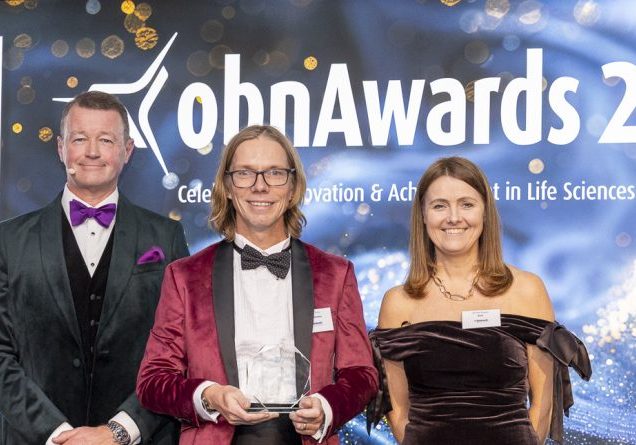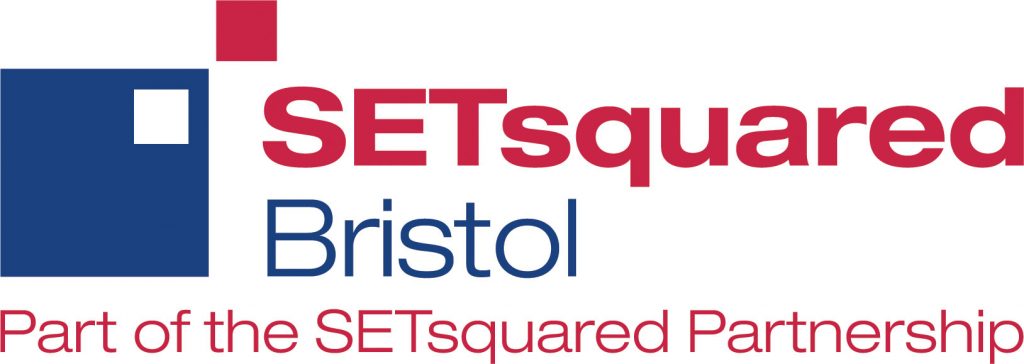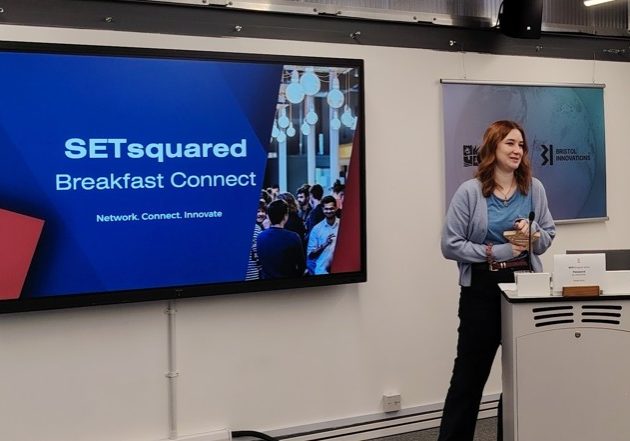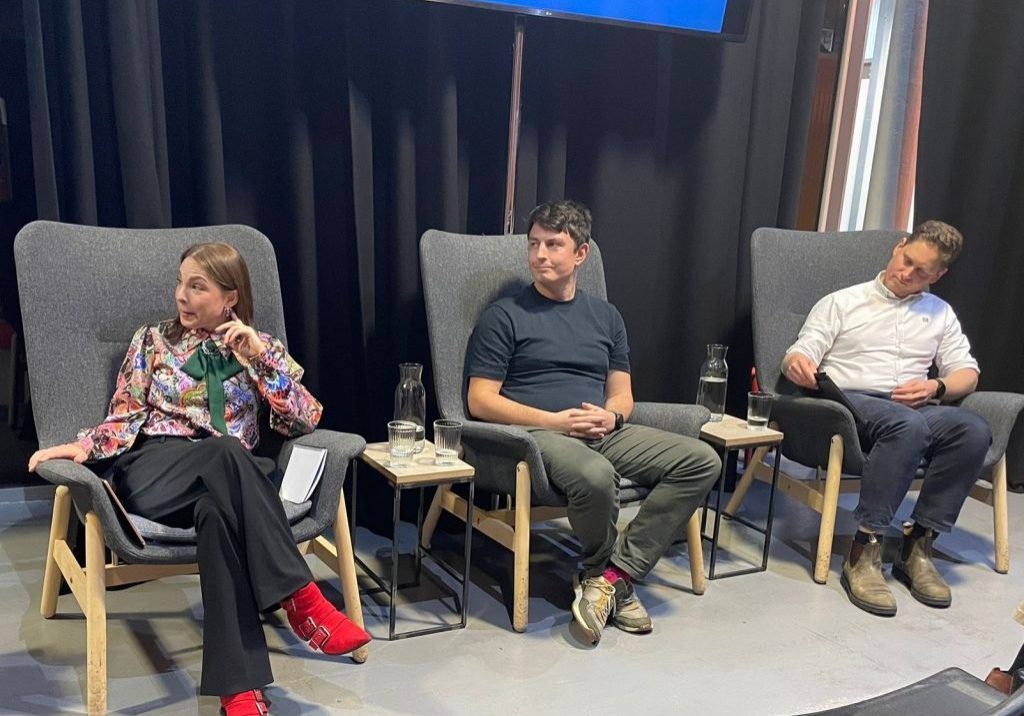Thinking differently: Neurodiversity in early-stage companies – Jack Jordan-Connelly
Posted by
Jack Jordan-Connelly
ADHD (Attention Deficit Hyperactivity Disorder) shares a common trait with many other mental health conditions, in which most people assume they have a ‘pretty good understanding’ of it, without actually realising the variety of ways it can manifest or affect day-to-day behaviour. I followed the not uncommon path of exhibiting extreme hyperactivity as a child but now as an adult, mainly must deal with the effects it has on my executive function.
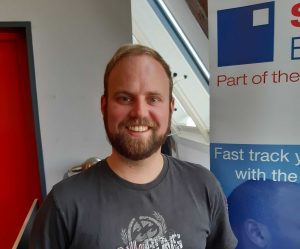 For those that don’t know me already, my name is Jack Jordan-Connelly and I’m Business Incubation Manager at SETsquared Bristol. What that means in plain English is that I have responsibility for managing both the incubation programme and the team here; responsibilities that understandably crossover much with my ADHD.
For those that don’t know me already, my name is Jack Jordan-Connelly and I’m Business Incubation Manager at SETsquared Bristol. What that means in plain English is that I have responsibility for managing both the incubation programme and the team here; responsibilities that understandably crossover much with my ADHD.
Neurodiversity* within tech as a sector is well covered but I’ll explain how I ended up here and why I believe that more people should be comfortable exploring non-linear developments in their career.
To start; I was diagnosed around 12 years old when I was living in Germany (at the time, it was a less common diagnosis for children there than it perhaps would have been in the UK). My time at school was marked by behavioural problems, up to and including being expelled. There was a level of understanding of ADHD at the time but it was generally still treated as a disciplinary issue at the schools I attended. An example of this is when the doctor suggested a good way to be able to pay attention in class would be to put my head on my desk and close my eyes to focus on listening. However when trying to explain this to my teachers, many assumed I was just ‘making it up’ to take advantage of my situation. By the time of university, my behaviour was all but a non-issue but of course I still struggled particularly with my attention span, prioritising work and memory, to name a few.
Now to the world of work, in which my first job was at a tech support call centre, working for Google. It was in this environment that, compared to education where I felt like I was always fighting against the tide, I now began to realise the many ways my ADHD could benefit both myself and the team. I quickly stopped working on my own calls and began supporting anyone on the floor that had difficult customers or complex issues. My rapid ability to switch attention became a strength. Coping mechanisms I had learned for years helped in ways that I never predicted, such as having a high level of emotional control, which allowed me to quickly resolve issues with customers that otherwise would have been bounced from person to person every time they raised their voice. Turning weaknesses to strengths is a key part of anyone’s growth but I believe one of the most profound lessons I learned at this age was that really, they were never ‘weaknesses’ to begin with – I just needed to find the right environment.
After that, I worked in recruitment for several years in which I found that the constant fast pace of the industry was something that helped me stay engaged and focussed. It was there I also discovered my personal love for both early-stage businesses and the broader tech sector. I eventually made the jump to client side and have worked primarily within cyber security and edtech before joining SETsquared Bristol – although near exclusively within small, early-stage, fast-growth companies. It is worth noting additionally that I was also fortunate in working with a series of extremely talented and supportive managers, each not only willing to accept how my ADHD affects my work practices, but also giving me the space and autonomy to work in ways that suit me best. Oxymoronic though it may seem, whilst ADHD can allow you to easily adapt to new and varied working environments, not every environment will be able to adapt to you and so that’s why I’ve found that relationship to team and role is crucial.
Fortunately, many companies and sectors are now recognising the benefits of neurodiverse hiring practices. Early-stage businesses in particular can hugely benefit from someone with ADHD. I’ve long considered myself a generalist, with a CV full of roles that seemingly have little to do with the previous, and that certainly comes from the way my thought process works. I have always prioritised learning new skills, difficult challenges and working in new areas over a traditional progression and pay increase career model. This will be the same of many with ADHD and other neurodiverse individuals. Benefits of ADHD can include (but aren’t limited to) having strong interpersonal skills, finding challenges and crisis invigorating and easier to handle, being able to ‘hyperfocus’, being able to ‘rapid fire’ multitask and having a naturally creative and non-linear thought process. As I’m sure many reading this will be able to see, these are all attributes that suit the trials and tribulations of early-stage businesses fantastically.
Whether it’s finding your strengths as a founder or within a broader team, we at SETsquared Bristol are here to support our startup members in that journey. If you’d like to find out more either about my experience in the workplace or about our work here at SETsquared, please don’t hesitate to reach out. If you’d like to apply for membership then you can find our application form here.
*I’ll note here that I appreciate that there are differences in the acceptance of certain terminology, ‘neurodiverse vs neurotypical’ for example, however I’ll be using what I feel most comfortable with when referring to myself.
Recent News, Blogs and Stories
